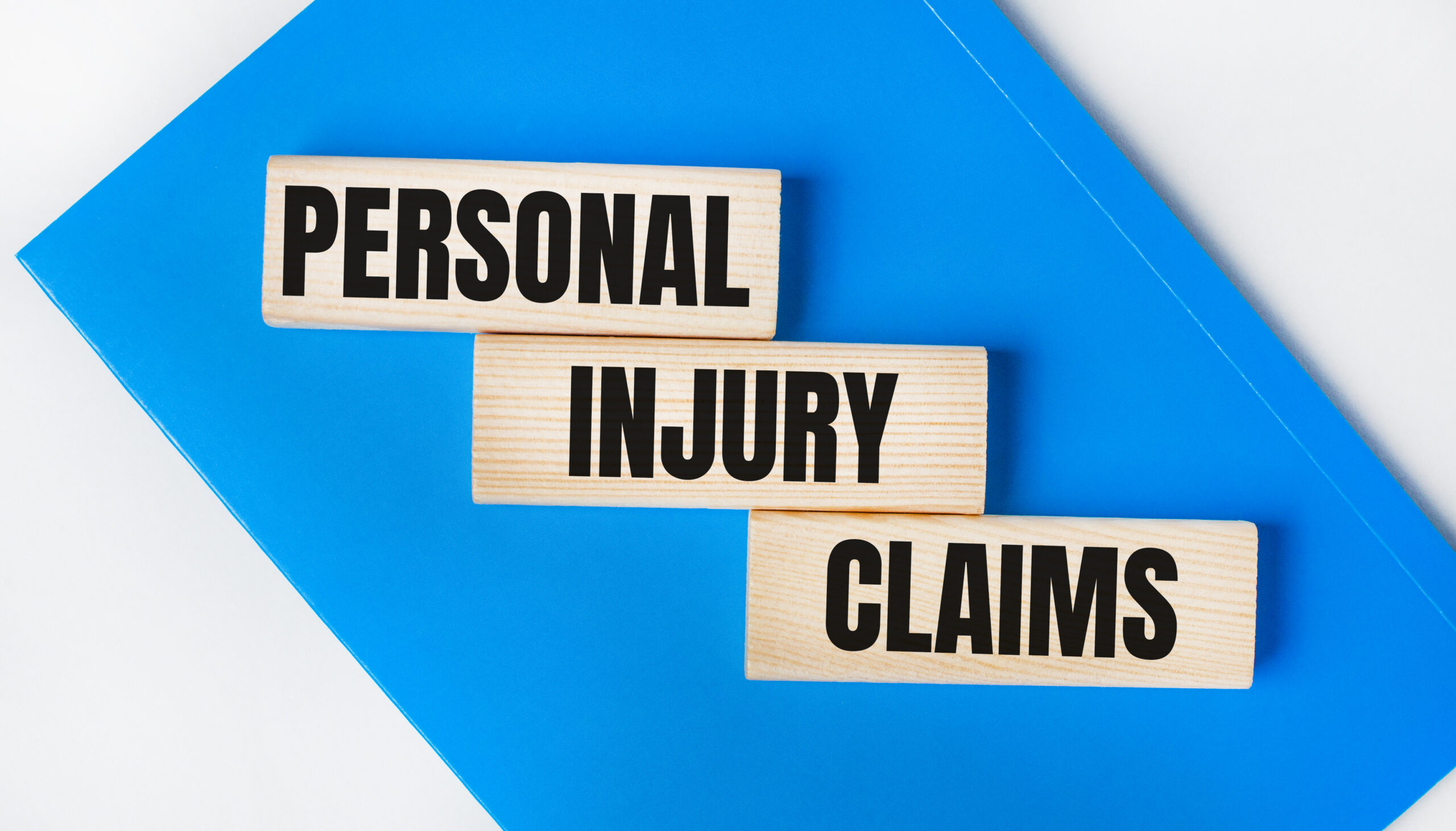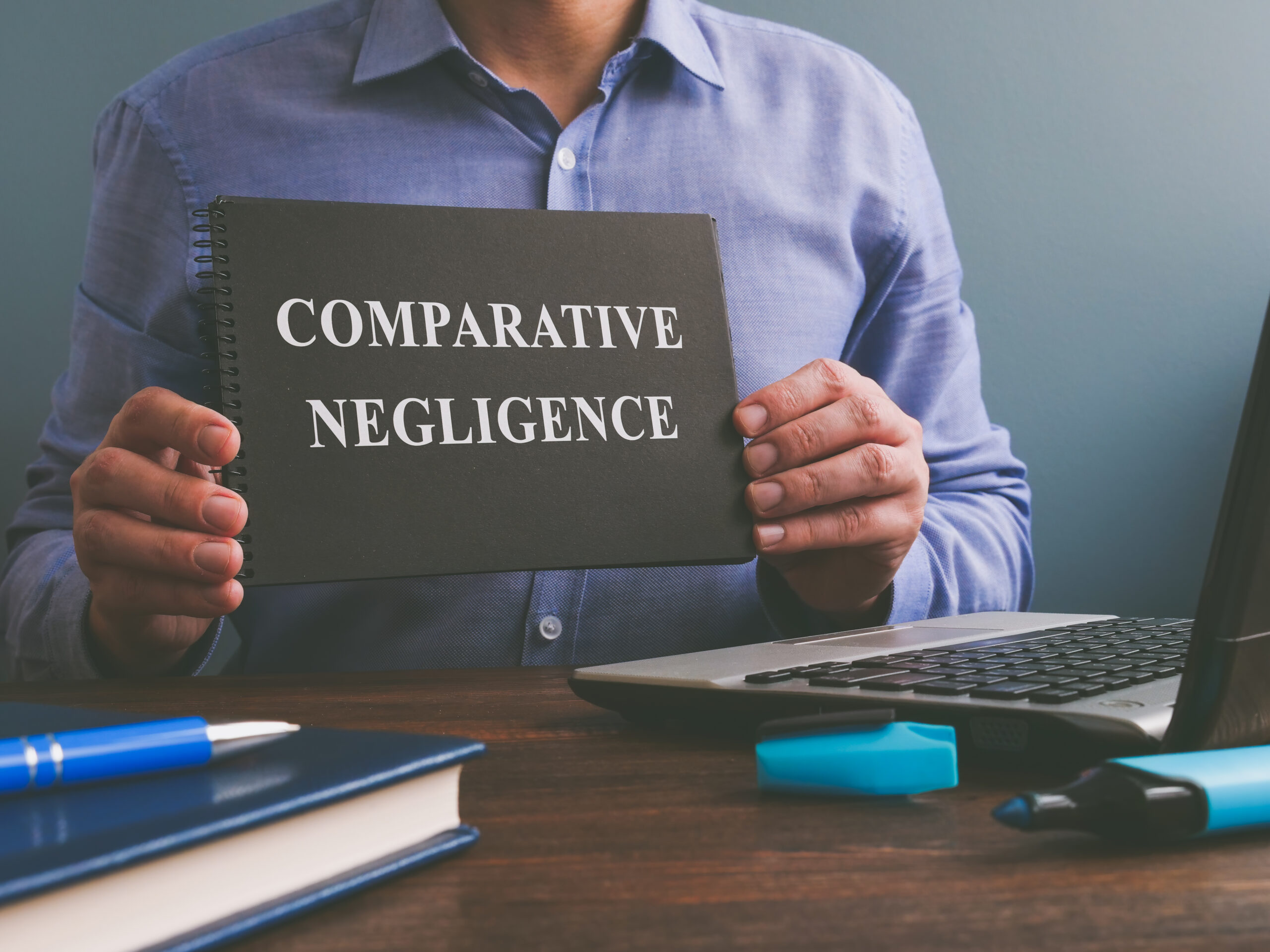- November 3, 2024

the right information can make all the difference in achieving a fair outcome.The financial and emotional toll can be overwhelming when you’ve been involved in an accident or suffered an injury due to someone else’s negligence. You may ask yourself, “What is the average payout for a personal injury claim?” Understanding this topic is crucial, as it can help set your expectations and guide you through the recovery process.
In this blog, we’ll explore various factors that influence personal injury payouts in Michigan, including average settlement amounts, common types of personal injury claims, essential steps to take and how a Southfield personal injury lawyer can help if you find yourself in such a situation.
Contact us online, and let us safeguard your rights and future.
Understanding Personal Injury Claims
A personal injury claim arises when you suffer harm due to another person's or entity's negligence.

Common situations include car accidents, slip and fall incidents, workplace injuries, and medical malpractice. In Michigan, personal injury cases typically fall under the category of tort law, which governs civil wrongs that cause harm.
Types of Personal Injury Claims
In Michigan, personal injury claims can vary widely. Here are a few common types:
- Car Accidents: With Michigan’s unique no-fault insurance laws, understanding how to navigate claims related to auto accidents is essential. The Michigan No-Fault Act provides benefits for medical expenses, lost wages, and other costs, but the nature of these benefits can complicate the claims process.
- Slip and Fall: Property owners have a legal duty to maintain safe premises. If you slip and fall due to unsafe conditions, such as icy sidewalks or wet floors, you may have grounds for a claim. The Michigan Occupational Safety and Health Administration (MIOSHA) outlines various safety standards that property owners must follow.
- Medical Malpractice: This involves negligence by healthcare professionals that leads to patient harm. In Michigan, medical malpractice claims can be complex, often requiring expert testimony to establish the standard of care and how it was breached.
- Workplace Injuries: Injuries occurring in the workplace may be covered under workers' compensation. However, if a third party is involved (like a negligent contractor), you may also pursue a personal injury claim against them.
- Dog Bites: Michigan law holds dog owners strictly liable for injuries caused by their pets. If you are bitten, you may be entitled to compensation regardless of whether the dog has a history of aggressive behavior.
- Product Liability: If a defective product injures you, you may have a claim against the manufacturer, retailer, or distributor. Michigan’s product liability laws allow you to seek compensation if a product is found to be unreasonably dangerous.
Average Payouts in Michigan
While it's difficult to pinpoint an exact average payout for personal injury claims, various studies and data can provide some insights.
According to national statistics, the average personal injury settlement can range from $3,000 to $75,000, depending on several factors. However, the specifics can vary significantly in Michigan due to state laws, the nature of the injury, and other factors.
- Minor Injuries: For less severe injuries, such as minor whiplash or soft tissue injuries, payouts typically range from $3,000 to $20,000.
- Moderate Injuries: Injuries that require more extensive medical treatment or rehabilitation can result in payouts between $20,000 and $50,000.
- Severe Injuries: For serious injuries such as traumatic brain injuries, spinal cord injuries, or permanent disabilities, settlements can reach $100,000 or more, with some cases exceeding a million dollars.
Factors Influencing Payout Amounts
Several critical factors can influence the payout amount in personal injury cases:
- Severity of Injury: More severe injuries, such as those requiring extensive medical treatment or leading to permanent disability, typically result in higher settlements. Injuries that impact your ability to work can dramatically increase your claim’s value.
- Medical Expenses: The total cost of medical treatment, including hospital stays, surgeries, rehabilitation, and ongoing care, plays a significant role in determining the claim’s value. Michigan law allows you to claim all reasonable medical expenses related to the injury.
- Lost Wages: If your injury causes you to miss work, you may be compensated for lost income. This includes not just your salary but also any benefits you may miss out on. In Michigan, you can also claim for future lost wages if your ability to earn is affected.
- Pain and Suffering: Non-economic damages, such as emotional distress and reduced quality of life, can significantly impact the settlement amount. Michigan courts allow for compensation based on the severity and duration of pain and suffering.
- Liability: The degree of fault attributed to each party in the accident can affect the compensation amount. In Michigan, the concept of “modified comparative negligence” means that if you are found to be partially at fault, your compensation may be reduced.
- Insurance Coverage: The type of insurance coverage available, both for you and the at-fault party, can limit or enhance the potential payout. In Michigan, drivers are required to carry no-fault insurance, which covers certain expenses regardless of fault.
- Legal Representation: Having legal assistance can significantly impact the outcome of your claim. Attorneys are skilled in negotiating with insurance companies and can often secure higher settlements.
Michigan’s No-Fault Insurance Law
Michigan has a no-fault insurance system, which means that in the event of a car accident, your own insurance covers your medical expenses and lost wages regardless of who was at fault. This can complicate the claims process, as it may limit your ability to pursue certain types of damages directly from the at-fault driver.

However, if your injuries are severe and meet specific criteria, you may still have the option to pursue a claim for pain and suffering or other damages outside of the no-fault system.
It’s crucial to understand how this law affects your particular situation. Under Michigan law, to step outside the no-fault system and sue for pain and suffering, your injuries must meet the “serious impairment of body function” standard.
Steps to Take After an Injury
If you find yourself in a situation where you’ve suffered a personal injury, follow these steps to help protect your rights and strengthen your claim:
- Seek Medical Attention: Your health is the top priority. Ensure that you receive proper medical care and document all treatments and expenses. Follow your doctor’s recommendations and keep records of all medical visits.
- Document Everything: Keep a detailed record of the incident, including photos, witness statements, medical records, and any correspondence related to the injury. This documentation can be crucial in establishing your case.
- Notify Your Insurance Company: If your injury is related to a car accident, notify your insurance provider promptly to start the claims process. Be prepared to provide them with detailed information regarding the accident.
- Consult with a Legal Professional: While it’s possible to navigate the claims process on your own, consulting with a legal professional familiar with Michigan law can provide valuable guidance and support. They can help you understand your rights and the potential value of your claim.
- Don’t Rush to Settle: Insurance companies may offer quick settlements to minimize their costs. Take your time to evaluate your situation fully before accepting any offers. Always consider the long-term implications of your injuries.
- Keep a Journal: Document your pain levels, emotional distress, and the impact your injury has on daily life. This personal account can support your claim for pain and suffering.
- Be Cautious with Social Media: Be mindful of what you post on social media. Insurance companies often monitor social media accounts for evidence that may undermine your claim.
The Role of Comparative Negligence
Michigan’s comparative negligence laws can play a significant role in determining your payout. If you are found to be partially responsible for the accident, your settlement may be reduced.

For example, if you are deemed to be 20% at fault and your total damages amount to $100,000, your settlement would be reduced to $80,000. This law underscores the importance of thorough documentation and legal representation.
Local Considerations for Injury Victims in Michigan
Michigan is home to various unique characteristics that can impact personal injury claims. Understanding these local nuances can be beneficial:
- Road Conditions: Michigan’s harsh winters can contribute to road accidents. Black ice, snow accumulation, and poor visibility can all lead to accidents. Be mindful of how weather conditions may factor into your case.
- Local Laws: Familiarity with local ordinances and regulations, especially those pertaining to property liability, can influence your claim. Each municipality may have specific safety codes that impact premises liability cases.
- Jurisdictional Variances: Different counties in Michigan may have varying procedures for handling personal injury claims. For example, courts in Detroit may have different practices compared to those in Grand Rapids or Ann Arbor.
- Landmarks and Areas of Concern: High-traffic areas such as the intersection of Woodward Avenue and Jefferson Avenue in Detroit, or busy shopping districts in suburban areas, can see a higher number of accidents. These factors can influence the nature and frequency of personal injury claims.
Common Misconceptions about Personal Injury Claims
As we delve deeper into the world of personal injury claims, it’s essential to address some common misconceptions that can hinder your understanding:
- All Claims Go to Court: Many personal injury claims are settled out of court. Litigation is often a last resort after negotiations fail. Most cases settle before reaching a courtroom, saving both parties time and money.
- Insurance Companies Always Have Your Best Interest at Heart: While insurance companies can help cover costs, they are ultimately focused on minimizing their payouts. Be cautious and informed during negotiations. Remember that adjusters may try to settle quickly and for less than you deserve.
- You Can’t Pursue a Claim if You’re Partially at Fault: In Michigan, as long as you are not more than 50% at fault, you can still seek compensation. This modified comparative negligence rule allows for a fair evaluation of each party’s responsibility.
- You Have Unlimited Time to File a Claim: Michigan has a statute of limitations for personal injury claims. Generally, you have three years from the date of the injury to file a lawsuit. Failing to do so could result in losing your right to compensation.
- Settlements Are Always Final: Once you accept a settlement, it is typically considered final. If you later discover additional injuries or expenses, you usually cannot go back for more compensation.
The Personal Injury Claims Process
Understanding the personal injury claims process is vital for anyone considering pursuing a personal injury claim. Here’s a detailed breakdown of what you can expect:
- Initial Consultation: Many legal professionals offer free consultations. This is your opportunity to discuss your case and understand your options without any financial commitment.
- Investigation: If you decide to proceed, your legal team will conduct a thorough investigation. This includes gathering evidence, interviewing witnesses, and consulting medical professionals if necessary.
- Demand Letter: Once the investigation is complete, your attorney will draft a demand letter to the insurance company, detailing your injuries, medical expenses, lost wages, and a request for compensation.
- Negotiation: After submitting the demand letter, the insurance company will review your claim and may counteroffer. This negotiation process can take time, and patience is key.
- Filing a Lawsuit: If negotiations do not result in a fair settlement, your attorney may recommend filing a lawsuit. This involves submitting formal legal documents to initiate court proceedings.
- Discovery Phase: During this stage, both parties exchange information and evidence. This can include depositions, interrogatories, and requests for documents.
- Trial or Settlement: Most cases do settle before going to trial, but if yours does not, you will present your case before a judge or jury. The decision will be based on the evidence presented.
- Post-Trial Motions: If you win, the defendant may file post-trial motions to reduce damages or challenge the verdict. Your attorney will guide you through this process.
Are You Ready to Discuss Your Claim?
Navigating the aftermath of a personal injury can be daunting, especially when considering the complexities of Michigan law and the various factors that influence potential payouts.

While there isn’t a one-size-fits-all answer to the average payout for a personal injury claim, being informed about the relevant laws, common practices, and local nuances can empower you to make educated decisions about your situation.
At Goodman Acker PC, we’re here to help you understand your rights and options. If you’ve been injured and are considering pursuing a claim, we can provide you with the support and guidance necessary to navigate this challenging process. Remember, every case is unique, and having
Contact us online, and let us safeguard your rights and future.

